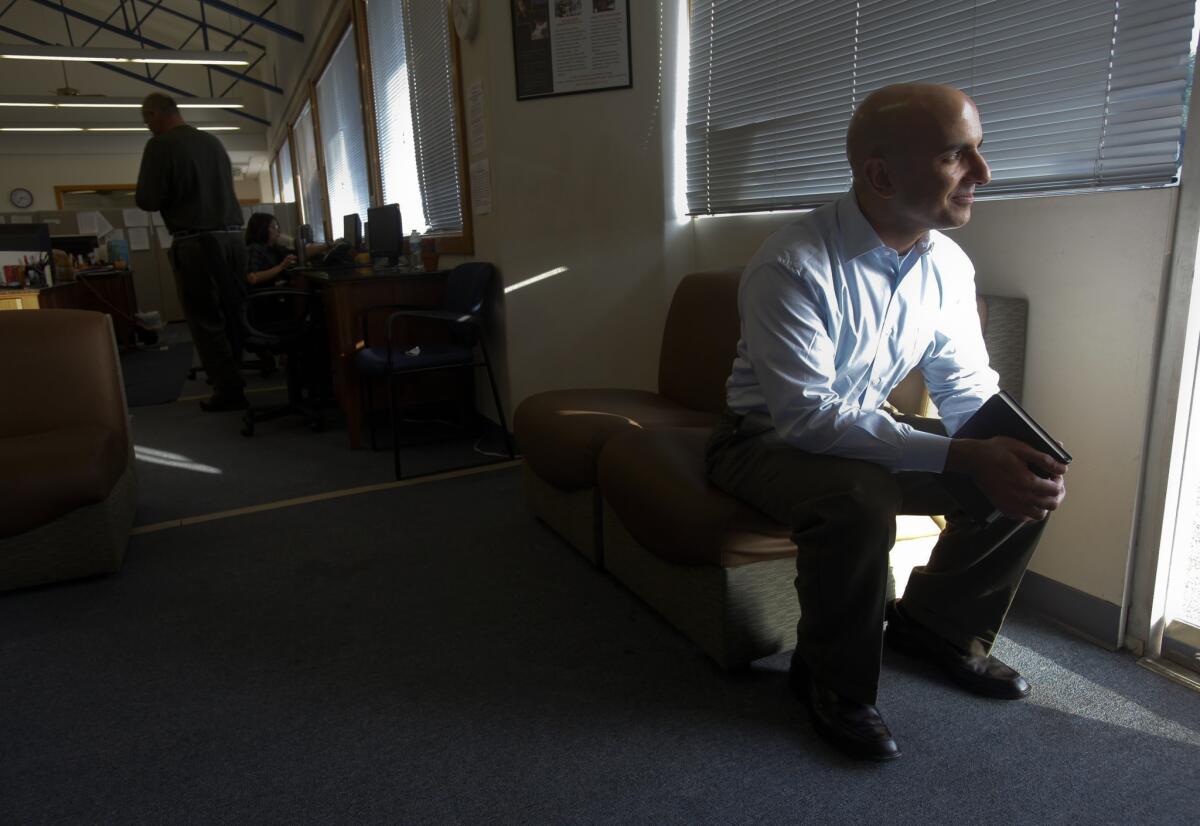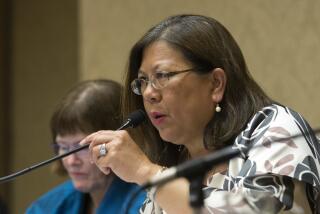After loss, Kashkari ruminates on his unsuccessful gubernatorial bid

In lieu of interviews, failed GOP gubernatorial candidate Neel Kashkari on Wednesday released a 7,000-plus word treatise on his neophyte run for elected office against Democratic incumbent Gov. Jerry Brown.
The article is largely a rationale for and chronology of his bid, which Kashkari officially kicked off in January but began contemplating many months earlier. There are no surprises in the piece, but there are details that highlight the naiveté that pervaded Kashkari’s effort.
The former financier and chief of the federal government’s $700-billion Wall Street bailout recounts a tale he told frequently on the campaign trail, that he was inspired to run after Mitt Romney’s defeat in the 2012 presidential election amid perceptions that the GOP didn’t care for working families, women and minorities.
“I looked around and didn’t see a deep bench of Republicans in California ready to lead that fight – so I asked, ‘why not me?’ ” Kashkari wrote.
It’s a path well-worn by wealthy businesspeople with no elected experience who decide to run for top offices in both political parties. In California, the most recent examples occurred four years ago by unsuccessful GOP candidates Meg Whitman, who wanted to be governor, and Carly Fiorina, who aimed for the U.S. Senate.
Both women had significant amounts of personal wealth to invest in their bids, notably Whitman, the former eBay chief and billionaire who spent $144 million on her unsuccessful effort against Brown. She ended up losing to the Democrat by 13 points.
Kashkari lost to Brown Tuesday by more than 17 points. Thought a multimillionaire, Kashkari had a tiny sliver of Whitman’s bank balance to put toward his bid, ultimately spending a little over $3 million of his own money – more than 60% of his stated net worth.
Kashkari said he underestimated how difficult it would be to raise his name identification in a state of 38-million residents. Indeed, a USC/Los Angeles Times poll in the campaign’s closing days found that more than two-thirds of registered voters could not name the GOP gubernatorial nominee. And Kashkari wrote that he did not anticipate how difficult it would be to raise money from GOP donors.
“The hardest part of this campaign was raising money. Developing substantive policies, dealing with the press, retail campaigning and debating Jerry Brown were all straight-forward. But I did not anticipate the fatigue major Republican donors felt after very well-funded defeats in 2010 and 2012,” Kashkari said. “Indeed many donors have simply given up on California and instead donate to races outside the state, such as for the U.S. Senate.”
He added that while he understood GOP donors’ reluctance to line up behind his bid, he decried their lack of financial support for the two Republicans who came closest to winning statewide office – secretary of state candidate Pete Peterson and controller candidate Ashley Swearengin. Notably, both of these candidates declined to endorse Kashkari during the general-election campaign.
“I understand many donors’ reluctance to take on the most famous politician in California, Jerry Brown, but at a minimum we need to be willing to fund strong Republican candidates in open seats, especially against little-known opponents,” Kashkari wrote. “It doesn’t get any easier than these races.”
Despite his overwhelming loss on Tuesday, Kashkari wrote that he was proud of his successes – beating a conservative GOP rival in the June primary election, his efforts to expand the California Republican Party, and his focus on issues typically outside the GOP playbook, notably the educational disadvantages of poor and minority children. But in the end, Kashkari could not answer whether his campaign affected the state GOP’s most pressing dilemma – a downward spiral that finds the party at a historic low in voter registration and the inability to elect a statewide candidate in nearly a decade.
“With the general election outcome a loss, was the larger experiment of unifying voters across party lines on a message of economic opportunity a failure?” Kashkari wrote. “My honest assessment is the answer is unclear. We simply didn’t have the resources to reach voters and deliver our message.”
Follow @LATSeema for political news.
More to Read
Sign up for Essential California
The most important California stories and recommendations in your inbox every morning.
You may occasionally receive promotional content from the Los Angeles Times.











